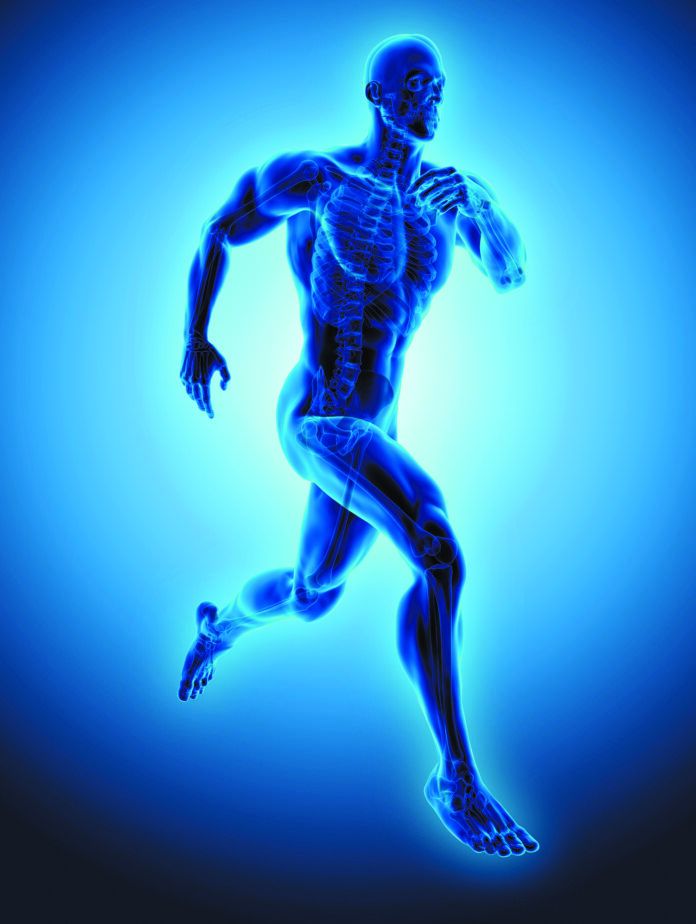If you want to build muscle, excel at a sport, or simply get the most out of regular physical activity, experts say some popular dietary advice is wrong. Let’s take a look at three common myths:
Myth #1: When it comes to muscle building and performance, the more protein intake the better.
“Protein is important for muscle growth,” says Jennifer Sacheck, PhD, professor and chair of Exercise and Nutrition Sciences at the Milken Institute School of Public Health, “but extra protein does not equal more muscle. Additionally, while protein is necessary for muscle growth and repair, as well as for other tissues in the body, carbohydrates and fats are the main fuelers of performance.”
Many people seeking to increase protein intake look to red and processed meats, both of which should be limited in a healthy dietary pattern. Intake of highly processed foods (a category that includes protein powders, shakes, and bars) is associated with negative health effects.
“Most people in the U.S. already consume more than the recommended amount of dietary protein,” says Sacheck. “Even body builders and serious athletes, who can benefit from higher protein intake, may already be reaching or exceeding recommended thresholds.”
Mythbusting advice: Don’t load up on protein in an effort to build and maintain muscle. Aim for regular intake of moderate amounts protein (roughly one-quarter of each meal) from healthy sources like fish, yogurt, beans, lentils, nuts/seeds, poultry, and some lean red meats. “People don’t realize that even grains and vegetables contain some protein,” Sacheck says.
Myth #2: Muscle loss is inevitable with age.
“It’s possible to build new muscle—at any age,” says Rachele Pojednic, PhD, EdM, an assistant professor and director of exercise science at Norwich University and a former researcher with the Nutrition, Exercise Physiology and Sarcopenia laboratory at the Human Nutrition Research Center on Aging at Tufts. Especially for people over 50, maintaining muscle mass and muscle integrity is crucial. “When muscle starts to go away,” Pojednic says, “you have increased risk of falls and injury, but also increased insulin resistance and risk for type 2 diabetes.” The more physically active you are, the more you can stave off diseases like diabetes, cardiovascular disease, and even cancer.
Mythbusting advice: There is some reduction in lean muscle tissue with age, but engaging in resistance training and consuming adequate healthy protein (see Myth #1) can help maintain a significant amount of muscle mass. Aim to work your muscles two to three times a week with activities like lifting weights or using weight machines; doing body-weight exercises like squats, push-ups, and planks; practicing yoga; or using exercise bands.
Myth #3: Anti-inflammatory supplements help with recovery.
“There’s a lot of marketing telling athletes that reducing inflammation is essential for recovery,” says Pojednic, “but reducing inflammation dramatically in exercised muscle is probably the worst thing you can do.” When you work your muscles, the muscle fibers break down. The damaged muscle sends an inflammatory signal that triggers the immune system to begin repair. If you take anti-inflammatory drugs like ibuprofen—or powders and other supplements marketed as ‘anti-inflammatory’—you could actually be blocking the ability of your muscles to recover.
Mythbusting advice: Pojednic recommends avoiding the purportedly anti-inflammatory supplements currently being heavily marketed to athletes. She also suggests letting your muscles be sore and saving ibuprofen and other Non-Steroidal Anti-Inflammatories (NSAIDs) for injuries or soreness during multi-day tournaments. “If you’re playing in four tournaments in four days, for example, your muscles don’t have enough time to rebuild completely and the soreness may become the limiting factor to performance,” she says. “Otherwise, let your body do its thing.”

























First, my understanding is that people who do light to moderate activity need 0.8mg/kg/day protein. An 80 kg,176, pound person would need just under 65 mg of protein per day. If they did high to very physical activity, that same 176 pound person would only meet 1mg/kg of protein per day or 80 mg. For inflammation, a high intake of a whole food plant based diet would help as well as fatty fish. Long term use of NSAIDS can cause severe health issues such as peptic ulcer with possible GI bleeding, kidney damage, hypertension, and many others.
Your calculations are off by a factor of 1000.